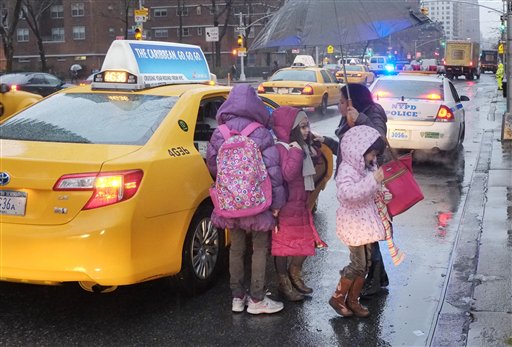Struck NY pushes through 2nd day of school bus walkout

School Bus Strike_Lieb.jpg
A standoff between striking school bus drivers looking for job protections and a city administration that says they just can’t have them has the potential to go on for some time, observers said, as parents struggle to get to work on time while scrambling to figure out alternatives for their children to get to school.
Union head Michael Cordiello said the drivers will strike until Mayor Michael Bloomberg and the city agree to put a job security clause back into their contract.
“I came to urge the mayor to resolve this strike,” Cordiello, president of Local 1181 of the Amalgamated Transit Union, said on Wednesday, the first day of the walkout. “It is within his power to do so.”